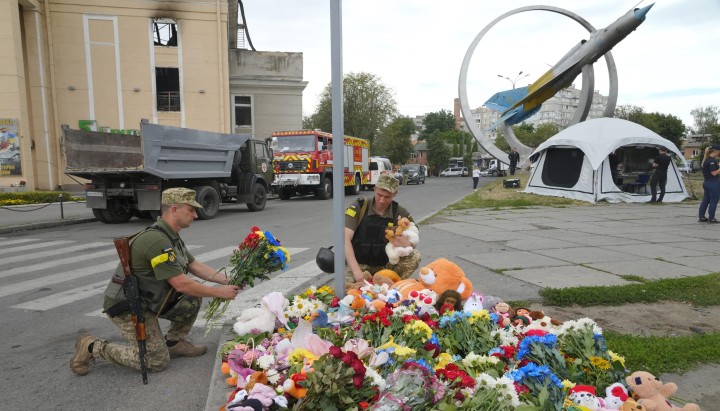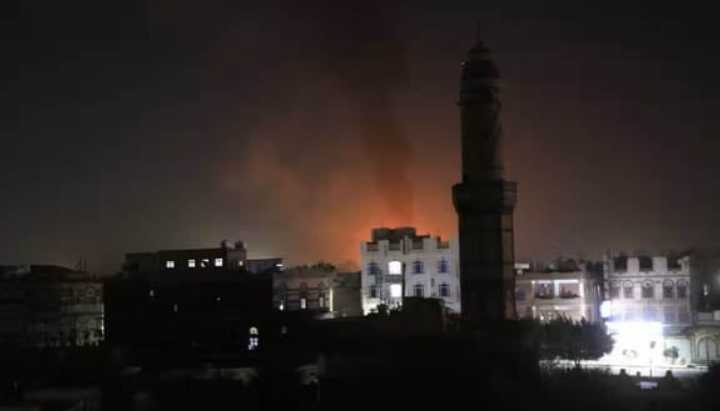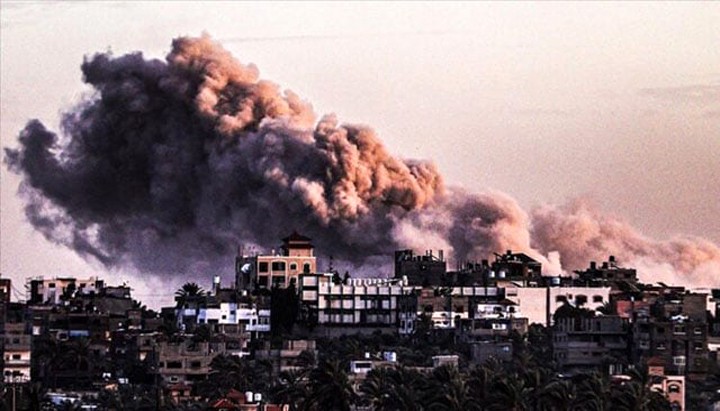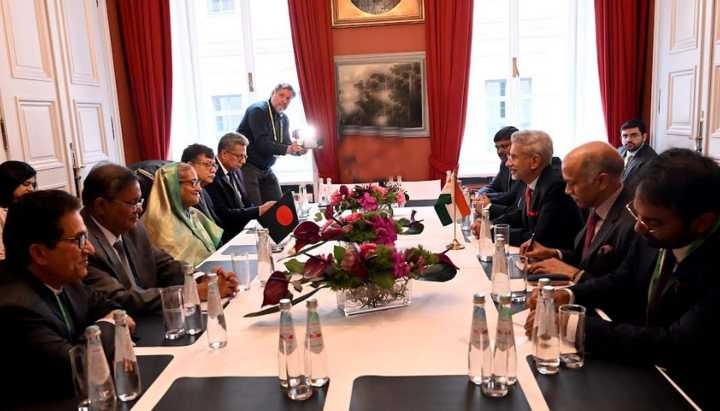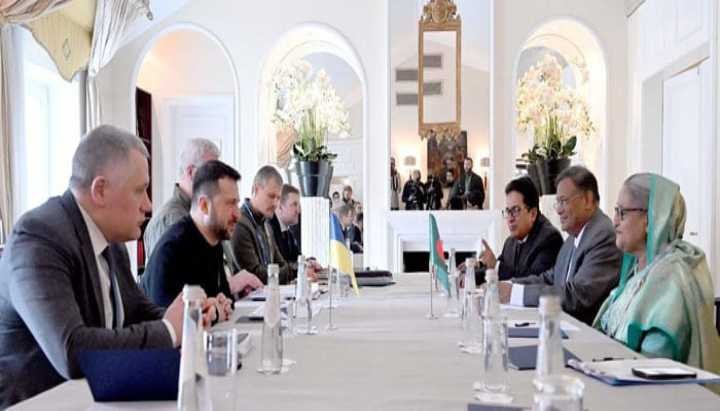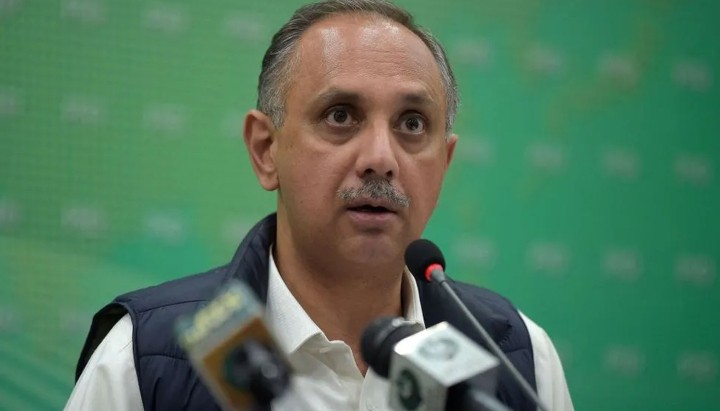Cruise missiles fired by Russian strategic bombers struck a
southeastern Ukrainian city late Friday, killing at least three people and
wounding 15, as air raid sirens went off across the country, officials said.
The attack on Dnipro came a day after a Russian missile
strike killed at least 23 people and wounded more than 200 in Vinnytsia, a city
southwest of Kyiv, the capital.
Russia’s military campaign has been focusing on the Donbas
in Ukraine’s east, but Russian forces also have been pounding other parts of
the country in a relentless push to wrest territory from Ukraine and soften the
morale of its leaders, civilians and troops as the war nears the five-month
mark.
Ukraine’s air force said several Kh-101 cruise missiles
fired from Tu-95MS strategic bombers over the Caspian Sea hit a factory about
10 p.m. in Dnipro, a major city on the Dnieper River. Four incoming missiles
were intercepted, it said. Videos posted on social media showed fiery
explosions and towering plumes of dark smoke.
The regional governor, Valentyn Reznichenko, said the
missiles hit the factory and nearby streets, killing at least three people and
wounding 15.
One of the dead was a bus driver who had just finished work
and was returning to the depot when a missile struck, said Ivan Vasyuchkov, a
member of the city council. The emergency service said two vehicles were burned
up and 10 others were damaged. The missile strikes also set the factory on fire
and blew out windows in nearby apartment buildings.
Airstrikes also were reported in Kremenchuk, another city
along the Dnieper River south of Kyiv.
Ukrainian President Volodymyr Zelenskyy urged everyone to
heed air raid sirens and seek cover.
“The occupiers are realizing that we are gradually becoming
stronger and the purpose of their terror is very simple — to put press on us,
to put pressure on our society, to intimidate people, to cause maximum harm to
Ukrainian cities, at least while the Russian terrorists are still capable of
doing it,” he said in his nightly video address to the nation.
The attack on Vinnytsia by cruise missiles launched from a
Russian submarine was the latest to fan international outrage since Russian
President Vladimir Putin began the invasion on Feb. 24. The dead included three
children: a 4-year-old girl, and two boys, 7 and 8.
“She was reaching for her daughter, and Liza was
already dead,” the mother’s aunt, Tetiana Dmytrysyna, told The Associated Press
on Friday. “The mother was robbed of the most precious thing she had.”
A video of Liza playing earlier in the day and a photo of
her lifeless body have gone viral worldwide.
Ukraine’s Interior Ministry said Friday that Russian forces
had conducted more than 17,000 strikes on civilian targets during the war,
killing thousands of fighters and civilians and driving millions from their
homes. The invasion has also rippled through the world economy by hiking prices
and crimping exports of key Ukrainian and Russian products such as grain, fuel
and fertilizer.
As the fighting raged, Russia noted progress in talks on a
possible deal to allow Ukraine to use the Black Sea to export millions of tons
of grain that could help feed a world facing shortages and higher food prices.
Alluding to talks in Istanbul this week among Russia,
Turkey, Ukraine and the United Nations, Russian Defense Ministry Spokesman Lt.
Gen. Igor Konashenkov said a final document had been prepared and that other
participants had “largely supported” Russian proposals to help ease grain
shipments through Ukrainian ports.
He said work on the “Black Sea initiative” was to be
completed shortly to allow shipments of food “while excluding the use of those
logistical chains for the deliveries of weapons and military equipment” to
Ukraine. He also said the plan seeks to “prevent any provocations.”
About 22 million tons of grain have been stuck in Ukraine
because of the war.
It was the most extensive Russian comment yet on the grain
talks, which mostly involved military officials. U.N. Secretary-General Antonio
Guterres said Russia and Ukraine had taken “a critical step” toward ensuring
exports of the desperately needed grain.
After Thursday’s strike on Vinnytsia, nearly 200 people
sought medical attention and 80 remain hospitalized, the emergency service
said. Zelenskyy said four people were still missing. Search teams were poring
over two sites Friday — an office building with a medical center and a concert
hall near an outdoor recreation area where mothers with children often stroll.
“Russia deliberately hit civilians and all those responsible
for the crime must be brought to account,” said Vinnytsia Gov. Serhiy Borzov,
denouncing the “barbaric behavior by Russia that tramples on international
humanitarian law.”
Kyrylo Tymoshenko, a deputy head of the Ukrainian
president’s office, said three missiles were used.
“There is no answer to the question why yesterday, and why
in Vinnytsia,” Tymoshenko said. “We expect every second and minute that this
could happen in any corner of Ukraine.”
After initial silence about the missile strikes on
Vinnytsia, Russia’s Defense Ministry said Friday that its forces had struck an
officers’ club — the Soviet-era use of the concert hall.
Konashenkov, the Russian Defense Ministry spokesman, said
the Kalibr cruise missiles landed as the “military facility hosted a meeting
between Ukrainian air force command and representatives of foreign weapons
suppliers.” He said attendees were discussing prospective supplies of warplanes
and weapons.
“Participants of the meeting were eliminated in the strike,”
Konashenkov said.
His claim couldn’t be independently verified. Ukrainian
authorities have insisted the site had nothing to do with the military.
A Ukrainian singer reported that she had been scheduled to
perform in the concert hall Sunday and that her sound engineer was killed in
the missile strike. The singer, Roxolana, said on social media that another
member of her crew was seriously injured.
In the Donetsk region, the governor reported that eight
civilians were killed and 13 wounded Friday when several cities came under
Russian shelling. The Donetsk region and the neighboring Luhansk region — now
nearly totally controlled by Russian forces — make up the broader Donbas.
“The situation in the Donetsk region is exacerbating every
day, and civilians must leave because the Russian army is using scorched-earth
tactics,” Donetsk Gov. Pavlo Kyrylenko said. It appeared that the cities of
Kramatorsk and Sloviansk were next in line for attacks by Russian forces.
Elsewhere, authorities in Mykolayiv said at least 10
explosions occurred in the southern city early Friday, accusing Russia of
hitting universities. Mykolayiv Gov. Vitaliy Kim posted a video of smoke rising
over the strikes.
The Russian news agency Tass, citing Russian-backed
separatists, reported Friday that two civilians were killed and six injured
after they said Ukrainian forces shelled a bus terminal in the city of Donetsk
a day earlier.
Also, a British aid worker detained by the Donetsk
separatists has died in captivity, a separatist official and a U.K. charity
involved with his case said Friday.
Punitive political actions over the war continued, with
Russian state news media reporting Friday that the Kremlin had barred 384
members of Japan’s parliament from entering Russia, citing retaliation for
Japan’s sanctions against Russian parliament members.
– AP/UNB


